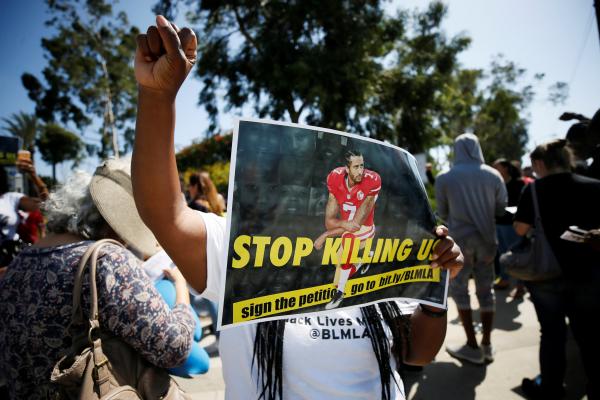Oct 5, 2017
Yes, take a knee, indeed, and act in every way you can — in every venue in which you have influence — to participate in the slow, painstaking, uncomfortable, but absolutely urgent task of dismantling white supremacy.
Read the Full Article

Already a subscriber? Login
